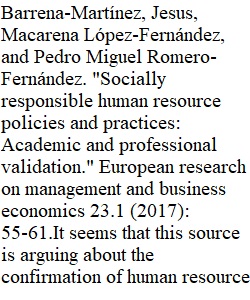


Q Overview: Now that we've discussed the importance of using credible secondary sources for your project, let's start annotating! Don't worry—we're going to walk through the process one step at a time. This week, you'll be guided through the writing-plan process with specific questions. In this section, we'll first focus on finding sources. Then we'll help you summarize those sources, evaluate their credibility, and explain how they will help support your argument. If you found a source that passed the C.R.A.A.P.O. test earlier in this module, feel free to use that as one of your sources. If you decided to alter your keywords and you'd like to start your research from scratch, that's totally fine too! Prompt: In this activity, you'll create an annotated bibliography by following the steps below and answering the questions as thoroughly as possible. The questions will prompt you to engage in a conversation with your sources. You will need to follow the steps below three times (for your three different sources).
View Related Questions